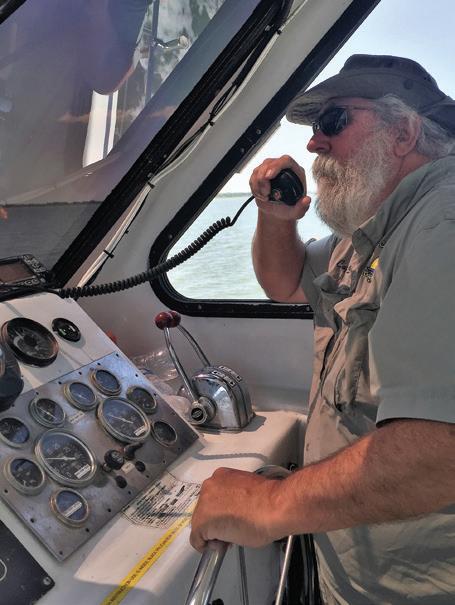
7 minute read
The Bitter End
VHF: Not the CB of the Water
By Captain J. Gary "Gator" Hill
Advertisement
Welcome back to another installment of What Irritates a Gator! This month I’d like to rant about proper radio usage, or a lack thereof, either of which can be annoying at best and dangerous at worst. From the title, you may gather where I’m going with this. Some people seem to think of their marine VHF radio as a glorified CB radio. But I’ll do my best to educate rather than offend y’all.
First, I’ll run through the most common channels and their proper usage.
Channel 9 – This channel is used for vessel to vessel contact, as well as ship to coast, such as in hailing drawbridge operators. Although there’s only one drawbridge left on the Georgia coast, there are still some remaining in other areas, such as Florida. Channel 9 is also used in some areas (such as the northeast) as a hailing channel in lieu of channel 16.
Channel 13 – This is strictly for navigational purposes for commercial vessels, such as near the entrances to the Port of Savannah and the Port of Brunswick, as well as military vessels. If you are near these areas I’d advise monitoring this channel versus 16, as it will allow you to listen in and have a better understanding of where the big ship traffic is.
Channel 16 – This is your hailing channel. Hailing means to initiate a conversation. Once initial contact has been made, select another working channel, such as channel 72, and have your discourse there. DO NOT ENGAGE IN CONVERSATION ON CHANNEL 16.
Channel 22A – This channel is for Coast Guard use only. It may be used to talk between the Coast Guard and a vessel in distress, or to make marine safety/security broadcasts.
Channels 24-28 – These are public telephone call channels. Note: there must be a marine operator present to fulfill a ship to shore call.
Channels 67-69 – These are recreational channels sometimes used by fishing fleets, such as shrimpers, to stay in touch with one another.
Now that we know where and what the channels are used for, let’s dissect proper usage! Channel 16 is the most often misused channel out there. Each fall and spring, we have a huge armada of snowbirds traveling the ICW and I’ve heard most everything under the sun being said over the radio. Channel 16 is NOT a place to be giving someone Aunt Martha’s recipe for rhubarb pie, nor is it to be used by marinas or boat captains to yell at someone for two solid minutes about their wake. Trust me when I tell you, the people leaving a huge wake are not listening!
Now let’s look at what else channel 16 is used for, namely the sharing of important information, which can fall into three types of calls: Email: TheOriginalCaptainGator@gmail.com
sécurité, pan-pan, or mayday. Say, for example, you’re in a well-traveled body of water and you see a huge piece of a piling or dock floating down the waterway that could cause damage. That would be known as a security issue. On channel 16, you would say, “Sécurité, sécurité, sécurité (it’s pronounced seh-KYURih-tay, and yes, you must say it three times), all vessels in the immediate area of (your location) be advised there is a (what-ever the issue is). Be advised it may be a menace to navigation.” If possible, give the direction the tide is moving for folks approaching the area. If possible, also hail the coast guard and give them the same information. Another example of when to make a sécurité call is just prior to entering major shipping channels. Simply say, “Sécurité, sécurité, sécurité, all vessels in the (area you’re approaching), name of your vessel will be entering (that area) in five minutes.” These calls should be made on channel 13, as all the commercial vessels will be monitoring that channel and it would be nice for them to know what boat traffic they may need to be aware of. Once the security information has been transmitted, end the call by saying (vessel name) will be standing by on channel (16 or 13). This will allow anyone concerned to contact you for any follow up information they may require. Next is the pan-pan message, the next level up from securite. This is for situations considered urgent but with no imminent danger of loss of life or vessel. This is also issued on channel 16 and can be given as a general call such as “all stations,” or specific station near you. For example, you’re taking on water and the bilge pumps seem to be keeping up, but you’re worried about a failure. Give the nature of the call and your location, this alerts boats in the area just to listen out in case your condition deteriorates. Finally, the mayday call. This is the scary one – things have gone pear-shaped and loss of life or vessel is imminent. As with securite and pan-pan calls, Mayday should Captain Gator exercising proper radio etiquette (and look, also be said three times to start the hail. Always be clear and concise as he trimmed his beard!). to nature of call, your location, your Photo by Connor McGuinty vessel name, and if possible a cell phone number. Many radios today have a distress button feature – PLEASE be sure yours is functional. When a mayday call is issued, all vessels in the area are to stop their activities and lend aid in whatever capacity can be done safely. In other words, do not increase the severity of a marine accident by placing your own vessel in peril as this compounds the situation, but you are required to help if it’s safe to do so. Also be aware that in most areas, making a false mayday call is a criminal offense. I hope my monthly rant helps clarify some of this and I’m sure y’all will make every effort to use the radio properly! Also, please always be sure your gear (radio included) is functional. You never know when your life or family might need to rely on it. 'Til our wakes cross again, peace and love, and shrimp and grits. I'll see you on the water!
4 Summer Home Decorating Tips
Seasonal decorating doesn’t have to mean pulling out boxes of decorations every time. You want to keep your home decorating simple and clean in the summer. But that doesn’t mean you can’t have a bit of extra fun in the summertime. Here are four decorating tips to help you feel more summery in your home this season.
Switch Your Bedding
You can throw off those fuzzy down comforters and swap in lighter blankets. The color can change, too, to reflect the season. Instead of the dark cozy colors of winter, opt for lighter, brighter colors to feel more like summertime.
Spruce Up Your Outdoor Space
Now that it’s summer and the days are longer, you’ll spend a lot more time outside. Make sure you optimize your outdoor seating to make it inviting for yourself and guests. Add lighting to your outdoor space to continue gathering after dark. And you can even make it more comfortable underfoot with an outdoor rug.
Light Summer-Scented Candles
While colors and comfort are essential for summer, you can also consider the scents of the season. Buy some delightful summer-scented candles to light throughout your house. Some scents to consider include beachy themes and tropical fruits.
Put Out Bowls of Citrus Fruits
To enjoy the summer with all of your senses, consider decorating with a bowl full of citrus fruits. The greens, yellows and oranges are gorgeous on a countertop or table, but they can also be useful as you can snack on them or use them to make delicious summertime beverages.
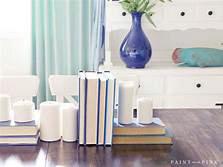
6349 Abercorn Street Savannah, GA 912.352.1222 • MyCBHomes.com Lyn McCuen 912.224.0927
lyn@coldwellbanker.com www.lynmccuen.com

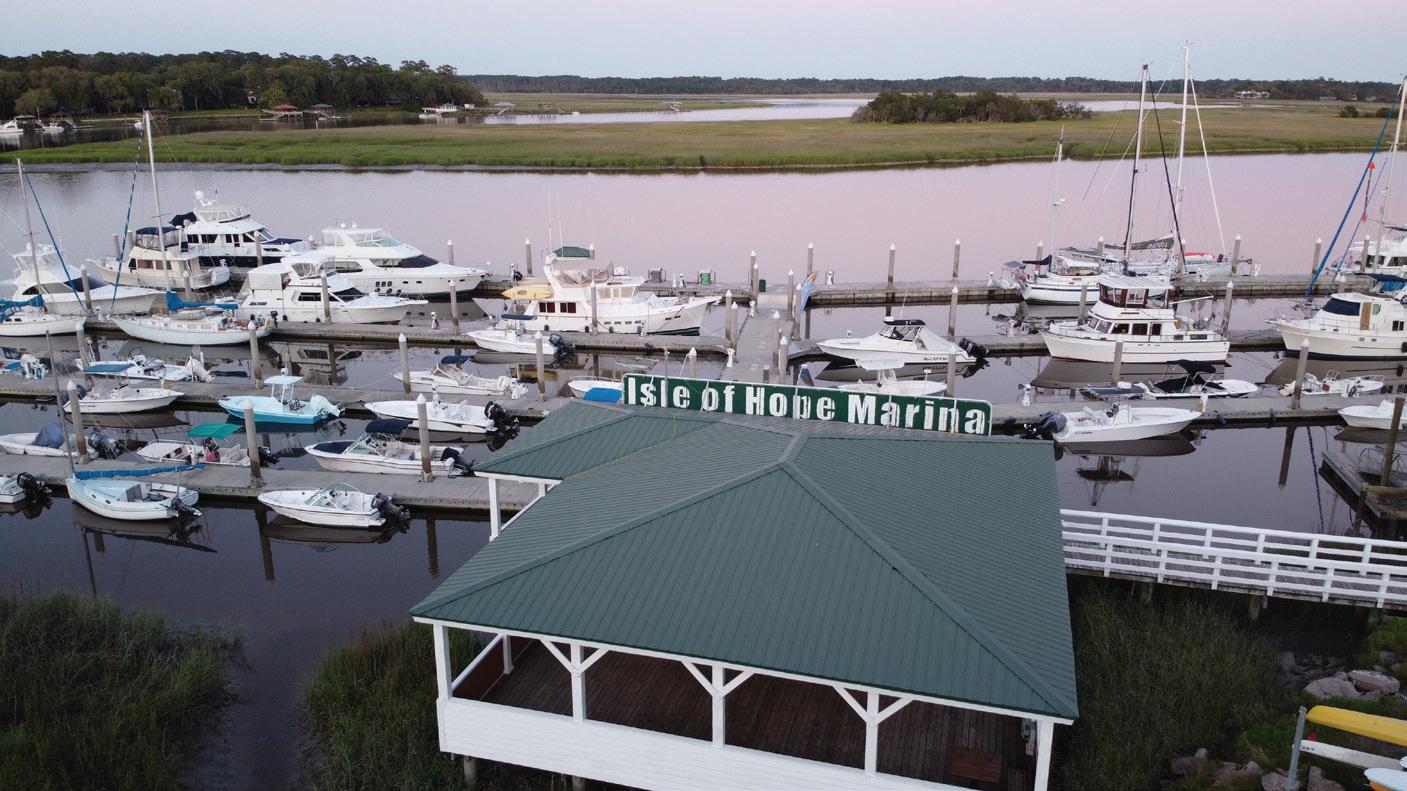
Complimentary High-Speed Wi-Fi 30-50-100 amp electrical service 4,000 feet of floating concrete docks 600 feet of deepwater face docks
Introducing marker 46a
Introducing our new addition, Marker 46A, exclusively for Isle of Hope Marina guests! Featuring an outdoor deck with comfortable seating and picturesque water views. Inside, you can find complimentary coffee, WiFi, high definition TV, and ceiling fans. Complimentary loaner cars and bicycles Ship ' s Store and Laundry Facilities 2,000 sq ft overwater pavilion Private restrooms and showers Gas, Diesel, and Pump-out facilities
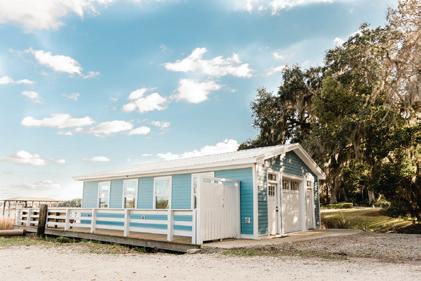
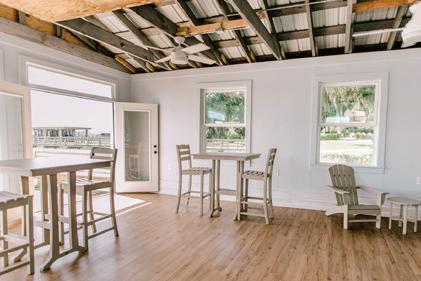
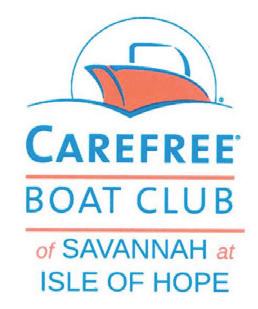
Scan to learn more about the Carefree Boat Club










